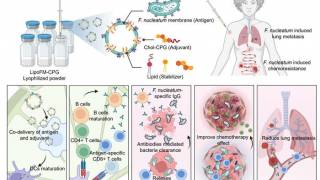More Bladder Cancer Patients Can Access Innovative Therapy

While the 100-year-old BCG vaccine has been used to treat certain bladder cancer pages for years, many patients were seeking a more efficient therapy.
Earlier in 2024, Anktiva® (nogapendekin alfa) became a U.S. FDA-approved first-in-class interleukin-15 agonist IgG1 fusion complex consisting of an IL-15 mutant fused with an IL-15 receptor alpha, which binds with high affinity to IL-15 receptors on NK, CD4+, and CD8+ T cells.
As of August 12, 2024, progress has been made in expanding market access of ANKTIVA to patients through both commercial and government insurance programs in the United States.
ImmunityBio, Inc. anticipates achieving agreements to extend the lives covered in the coming months. It is currently working with the top insurance plans and academic institutions in the U.S. to increase ANKTIVA accessibility.
Additionally, ImmunityBio announced plans to expand its bladder cancer program globally, notably in the European Union, India, and the United Kingdom.
New regulatory filings include 30 countries, 27 in the EU and three in the European Economic Area. The company anticipates completing the submission of the initial EMA filing in Q4 2024.
“The approval of ANKTIVA with a first-in-class mechanism of action of activating natural killer cells, CD8 killer T cells, and memory T cells, marks the beginning of a next-generation immunotherapy beyond checkpoint inhibitors,” said Patrick Soon-Shiong, M.D., Founder, Executive Chairman and Global Chief Scientific and Medical Officer at ImmunityBio, in a press release.
“The quest of developing a cancer vaccine by orchestrating the innate and adaptive immune system has begun, and we look forward to developing ANKTIVA as the foundation across multiple tumor types and even in subjects without cancer but at high risk, such as in Lynch syndrome.”
Recently, ImmunityBio’s commercial team executed key market access initiatives, which have resulted in more than 100 million medical lives being covered by medical reimbursement policies that include eligibility for ANKTIVA reimbursement since the therapeutic became available and was added to the National Comprehensive Cancer Network guidelines in May 2024.
“We are encouraged by the keen interest that physicians are showing in ANKTIVA as a treatment option for their patients with non-muscle invasive bladder cancer with carcinoma in situ, as well as by our conversations with payers as we see them adding our approved product into their policies,” commented Richard Adcock, President and CEO of ImmunityBio.
“Our team continues to focus on streamlining the processes for bringing this specialty medication to more qualified patients. We are acutely aware that with cancer, every day matters.”
From a clinical perspective, ImmunityBio continues to add U.S. sites to the BCG naïve trial (QUILT-2.005) and enroll patients in the study.
Further, the company has received regulatory approval to begin patient enrollment in QUILT-2.005 in India, and the necessary medicines have been successfully imported into the country for use in the trial. Additionally, the company plans to submit an application to the South African regulatory authorities in Q3 2024 to initiate the QUILT-2.005 trial in that country.
Moreover, on April 25, 2024, the company announced positive overall survival results of ANKTIVA combined with checkpoint inhibitors in NSCLC from the completed QUILT 3.055 trial. In that trial, the median overall survival was almost double that of standard-of-care chemotherapy in second and third-line NSCLC patients whose cancer did not respond to checkpoint inhibitors, with or without chemotherapy.
After meeting with the FDA in June 2024 to discuss a path to a registration filing for ANKTIVA plus checkpoint inhibitors for this indication, the company is preparing additional study information responsive to the Agency’s input on an NSCLC pivotal trial.
ImmunityBio plans a subsequent meeting with the FDA to discuss the study endpoints for potential approval on various timelines.
Our Trust Standards: Medical Advisory Committee
























